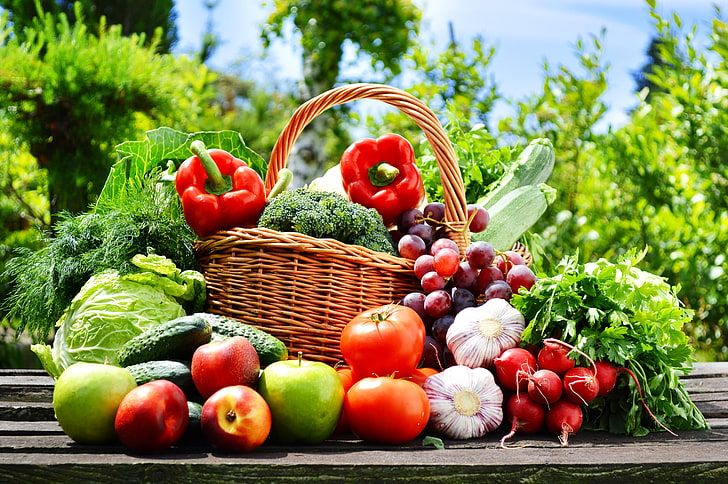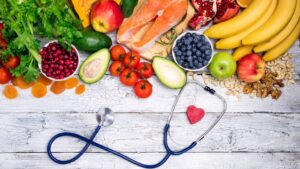
Understanding Sotalol
sotalol and bananas is a medication primarily utilized in the management of arrhythmias, which are irregular heartbeats that can lead to more severe heart complications if left untreated. This drug belongs to a class known as antiarrhythmics and is particularly beneficial for individuals who need to maintain a stable heart rhythm. By blocking certain sotalol and bananas electrical signals in the heart, sotalol helps to re-establish a normal heartbeat, thus improving overall cardiovascular stability. The effectiveness of sotalol, however, is not without its considerations.
One of the notable benefits of sotalol and bananas is its ability to decrease the risk of sudden cardiac arrest in patients with specific heart conditions. Clinicians often prescribe this medication to patients with atrial fibrillation or atrial flutter, as it helps control the heart rate and rhythm. Nevertheless, like all medications, sotalol sotalol and bananas comes with potential side effects, including fatigue, dizziness, and in some cases, bradycardia—the slowing of the heart rate. It is essential for patients to be vigilant about these side effects, as they can sometimes indicate complications related to sotalol therapy.
Adherence to sotalol and bananas the prescribed dosage is critical. Patients are advised to take sotalol exactly as directed by their healthcare provider. Abruptly discontinuing the medication can lead to rebound effects, potentially worsening an individual’s cardiac condition. Regular monitoring, including periodic ECGs and kidney function tests, is often necessary to ensure the medication’s efficacy and safety.
Furthermore, it is essential to discuss any concurrent medications with healthcare providers, as interactions can alter the performance of sotalol. Increasing awareness of the connection between sotalol and dietary constituents, such as fruits like bananas, can also be beneficial. Such dietary insights will be explored further in the upcoming sections.
Nutritional Benefits of Bananas
Bananas are one of the most widely consumed fruits globally, renowned for their rich nutritional profile and numerous health benefits. This tropical fruit is particularly celebrated for its high potassium content, which is essential for maintaining healthy heart function and regulating blood pressure. A medium-sized banana typically contains about 422 mg of potassium, making it an excellent choice for those looking to support cardiovascular health.
In addition to potassium, bananas are a good source of several essential vitamins and minerals. They are rich in vitamin C, which acts as a powerful antioxidant, protecting the body from free radicals and supporting the immune system. Furthermore, bananas contain vitamin B6, which plays a crucial role in brain health and the production of neurotransmitters, enhancing mood and cognitive function.
Moreover, bananas provide dietary fiber, particularly soluble fiber known as pectin. This type of fiber aids in digestion and promotes feelings of fullness, which can be beneficial in weight management. The fiber in bananas helps support a healthy digestive system by regulating bowel movements and preventing constipation.
Bananas also contain various phytonutrients and antioxidants that contribute to overall health. These compounds have been linked to reduced inflammation, improved energy levels, and effective regulation of blood sugar levels. By integrating bananas into a balanced diet, individuals can enjoy not only their sweet flavor but also a multitude of health benefits.
In light of their nutritional advantages, bananas can play a complementary role in a heart-healthy diet, especially when considered alongside medications such as sotalol, which is prescribed for heart rhythm disorders. Given their high potassium content and heart-supportive properties, bananas serve as an ideal dietary choice within this context.
The Interaction Between Sotalol and Bananas
Understanding the interaction between sotalol, a medication commonly prescribed for arrhythmias, and bananas is crucial for patients seeking effective management of their health conditions. Sotalol primarily functions by blocking certain electrical signals in the heart, which helps to stabilize heartbeat irregularities. One important aspect to note is that sotalol can influence potassium levels in the body. Consequently, patients on this medication should be cautious about their intake of high-potassium foods, such as bananas.
Bananas are well-known for their rich potassium content, providing approximately 422 mg of potassium per medium-sized fruit. While potassium is an essential mineral for various body functions, including heart health, excessive potassium levels can lead to complications, especially for individuals taking sotalol. The medication can increase the risk of cardiac arrhythmias if serum potassium levels become imbalanced—either too low or too high.

Current research suggests that maintaining the right potassium levels is vital for patients on sotalol. Consuming moderate amounts of potassium-rich foods, such as bananas, may not pose significant risks, but excessive intake should be avoided. Patients should aim to balance their diets carefully and consult healthcare professionals for personalized dietary recommendations. This is especially important for individuals who may already have underlying health conditions affecting their potassium metabolism or excretion.
Additionally, ongoing monitoring of potassium levels through blood tests is a recommended practice for patients prescribed sotalol. This approach ensures that any dietary adjustments, including the consumption of bananas, can be appropriately managed to prevent any adverse effects on treatment efficacy. Future studies may further illuminate the relationship between sotalol and dietary potassium, allowing for tailored dietary guidelines for individuals undergoing sotalol therapy.
Practical Dietary Tips for Sotalol Patients
For individuals taking sotalol, managing dietary choices becomes an essential aspect of treatment, particularly with respect to potassium intake. Bananas, recognized for their high potassium content, can be a nutritious addition to the diet; however, it is crucial to balance potassium levels carefully. Patients are advised to be mindful of their overall potassium consumption and consider integrating bananas in moderation.
One practical approach is to monitor the quantity and frequency of banana intake. While bananas are beneficial, excessive consumption may lead to hyperkalemia, a condition characterized by elevated potassium levels in the blood. Patients on sotalol should aim for a balanced diet that includes various potassium sources while keeping the total intake within recommended limits. The general guideline suggests that adults should aim for potassium levels around 2,500 to 3,000 mg per day, but individual requirements may vary based on age, sex, and health conditions.
It is also important to recognize the signs of potassium overload, which can include muscle weakness, fatigue, and abnormal heart rhythms. If any of sotalol and bananas these symptoms arise, it is advisable to seek medical attention immediately. Additionally, consulting a healthcare provider if there are significant dietary changes, especially involving potassium-rich foods like bananas, is essential. They can provide personalized guidance and monitor potassium levels through blood tests if necessary.
sotalol and bananas Incorporating a variety of fruits and vegetables can help ensure that potassium intake remains balanced. Leafy greens, beans, sotalol and bananas and avocados are recommended alongside bananas. Ultimately, maintaining a well-rounded diet while on sotalol allows for more effective management of heart conditions and overall wellbeing.
May Be You Also Read
